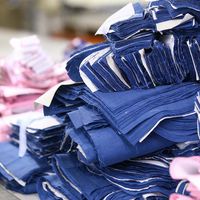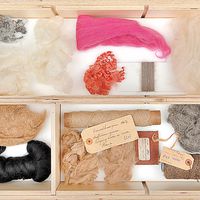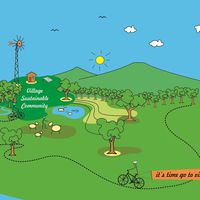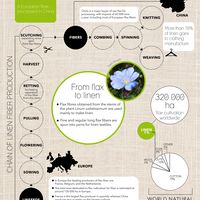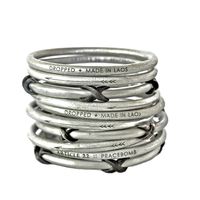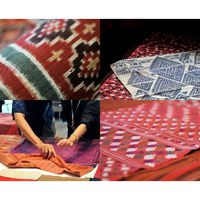Carmen Hijosa, pineapple pioneer
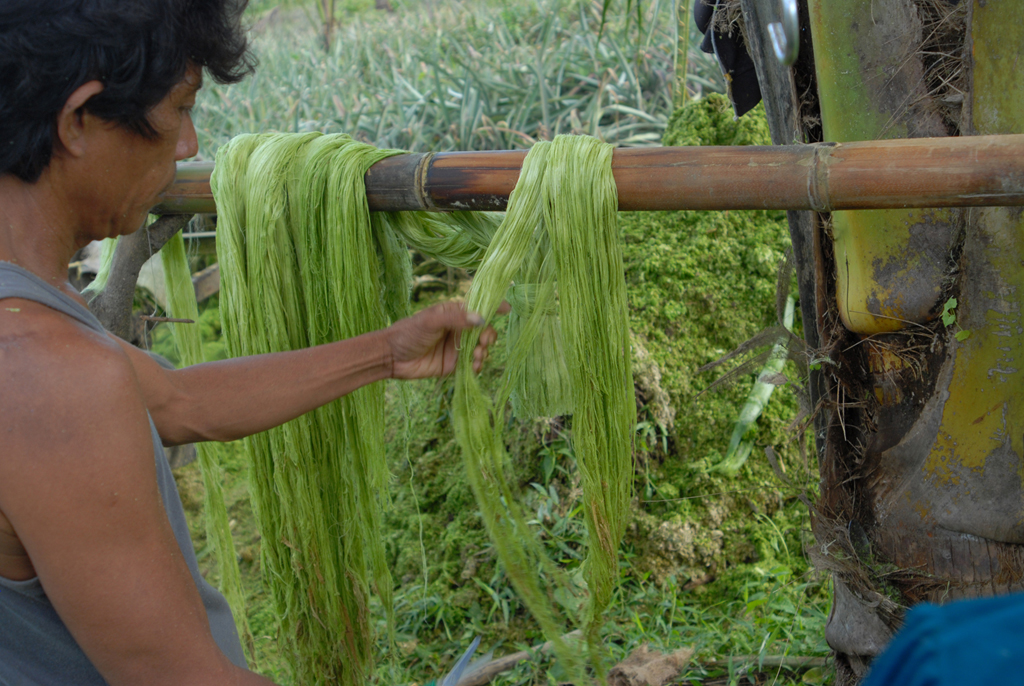 [caption id="attachment_61757" align="aligncenter" width="447"]
[caption id="attachment_61757" align="aligncenter" width="447"]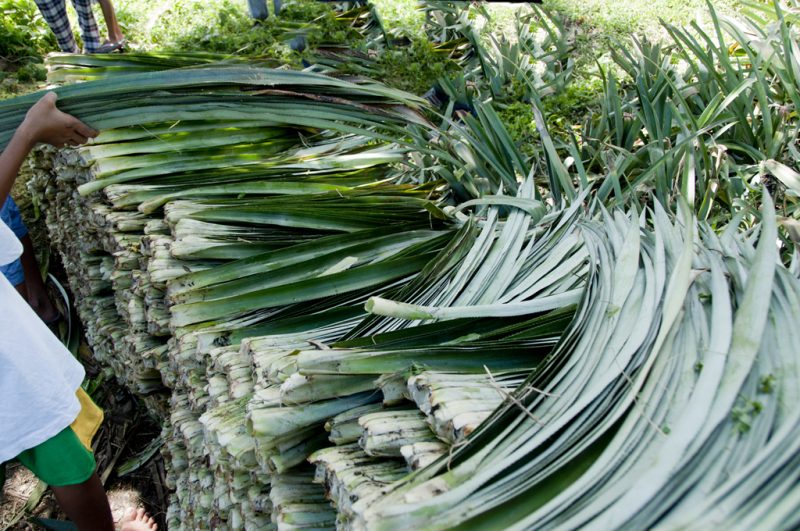 Ananas Anam/Pinatex[/caption]
Ananas Anam/Pinatex[/caption]In 2016, culture360 invites you to get an insight on issues that are highly discussed in the cultural sector across Asia and Europe.
Through a number of in-depth articles and interviews, Magali An Berthon will focus on inspiring projects and personalities which make their mark as design and craft innovators and active cultural heritage supporters. Piñatex™ is going to revolution the world of materials: this plant-based luxury textile is the brainchild of Carmen Hijosa, former leather expert and sustainable pioneer. Discover her journey on Culture 360.
[caption id="attachment_61759" align="alignright" width="444"]
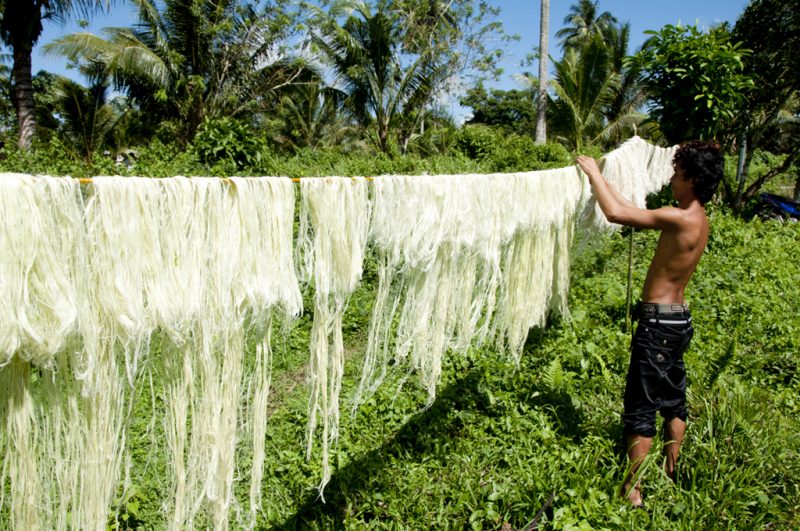 Ananas Anam/Pinatex[/caption]
Ananas Anam/Pinatex[/caption]From Spain to the Philippines, Carmen Hijosa has embarked on a creative journey like no other. This dynamic sexagenarian born in the Asturias started her career in the leather industry in the 1990s. For 15 years, this entrepreneur at heart successfully designed and produced leather goods, selling to international department stores such as Harrods in London and Takashimaya in Tokyo. This experience led her to travel across the globe intensely and to do consultation work as a leather expert. In the early 2000's one particular trip turned out to be life-changing. Hijosa came to the Philippines to conduct research for the Design Centre Philippines in Manila to study the local leather industry and find potential alternative materials. She first looked into sisal and abaca, a local banana tree that is used to produce hemp-like fibers. A that time Carmen Hijosa had started to question the environmental impact of leather production, resulting in unsustainable making conditions, water pollution and toxic fumes.
[caption id="attachment_61761" align="alignleft" width="348"]
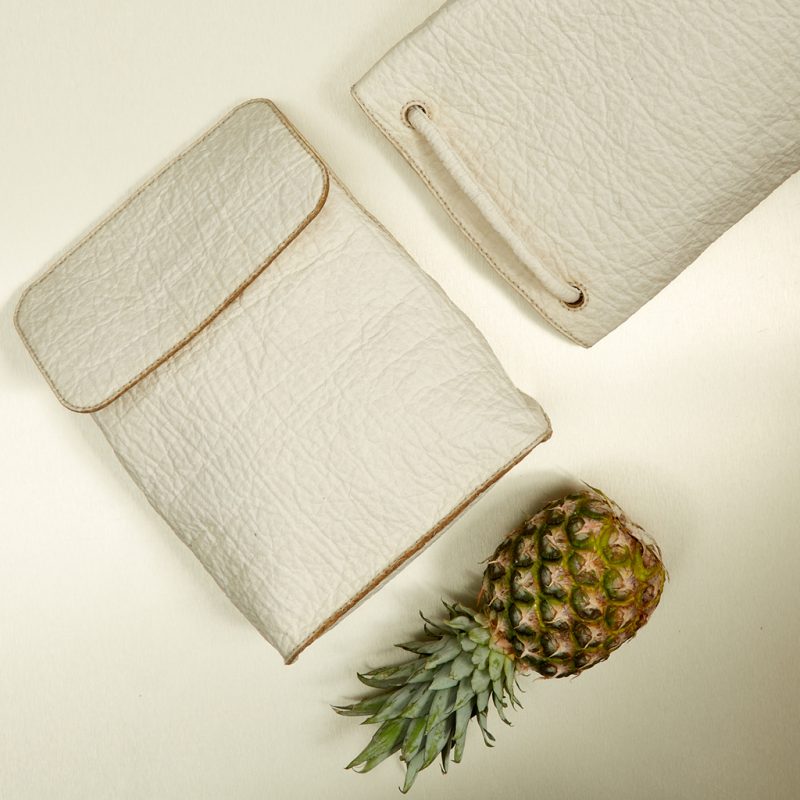 Ananas Anam/Pinatex - Designed and made by Smith Matthias[/caption]
Ananas Anam/Pinatex - Designed and made by Smith Matthias[/caption]So when she eventually visited a pineapple field and noticed that all the pineapple leaves were cut off and sent to waste, she had a breakthrough. What if these discards could be turned into textiles?
The Philippines is the land of the piña cloth, an ancestral textile derived from the Red Spanish pineapple leaves. This ivory-white sheer hand-woven cloth is used for wedding gowns and ceremonial attire. Taking cue from this traditional practice, Carmen Hijosa has developed Piñatex™, an innovative non-woven fabric perfected after 7 years of intense R&D. She has created a patented plant-based textile that offers texture and qualities similar to leather, but without the ecological impact.
Piñatex™ follows a “cradle-to-cradle strategy,” that takes into account the life-cycle of the product by minimizing waste, choosing sustainable processes and considering energy-consumption.
The production of this new material is also the opportunity to provide additional income for the Filippino farmers. The fibres are extracted locally from the harvested pineapple leaves and are turned industrially into a mesh-like fabric before being sent to Spain for their final finishing.
To bring her project to the next level, Carmen Hijosa moved to London in 2010 to pursue a PhD at the Royal College of Art that she completed in 2015. In 2013 she founded her pioneering company Ananas Anam that manufactures Piñatex™ and established it within the RCA innovation creative hub. Piñatex™ appears as a vegan alternative to leather, in a time where consumers express growing concern for ethical environmental practices and animal treatments. This versatile material can be dyed, printed, and developed in an array of thicknesses and textures, which makes it highly suitable for the luxury fashion industry. It can easily replace leather and be used for handbags, shoes, and other accessories. Carmen Hijosa holds high expectations for the future of her star material. She has just won the Award for Material Innovation from the Arts Foundation UK in 2016. She hopes to provide a fully biodegradable version of Piñatex™, and to build a production model of pineapple leaves-based textile that could be exported from the Philippines to other developing countries.
More info here: http://www.ananas-anam.com
Magali An BERTHON is a French Vietnamese textile designer and editor based in Paris. Graduate of the National School of Decorative Arts in Paris, she has gathered a valuable experience as a textile designer for fashion and home collections. She finds inspiration in her many travels especially in South-East Asia and has developed a deep interest for ethnic arts & crafts, natural fabrics and dyes. In parallel, she works as a writer and documentarist specialized particularly on textile know-how from all over the world.
Similar content
30 May 2016
22 May 2017
30 Jun 2016
16 May 2014

